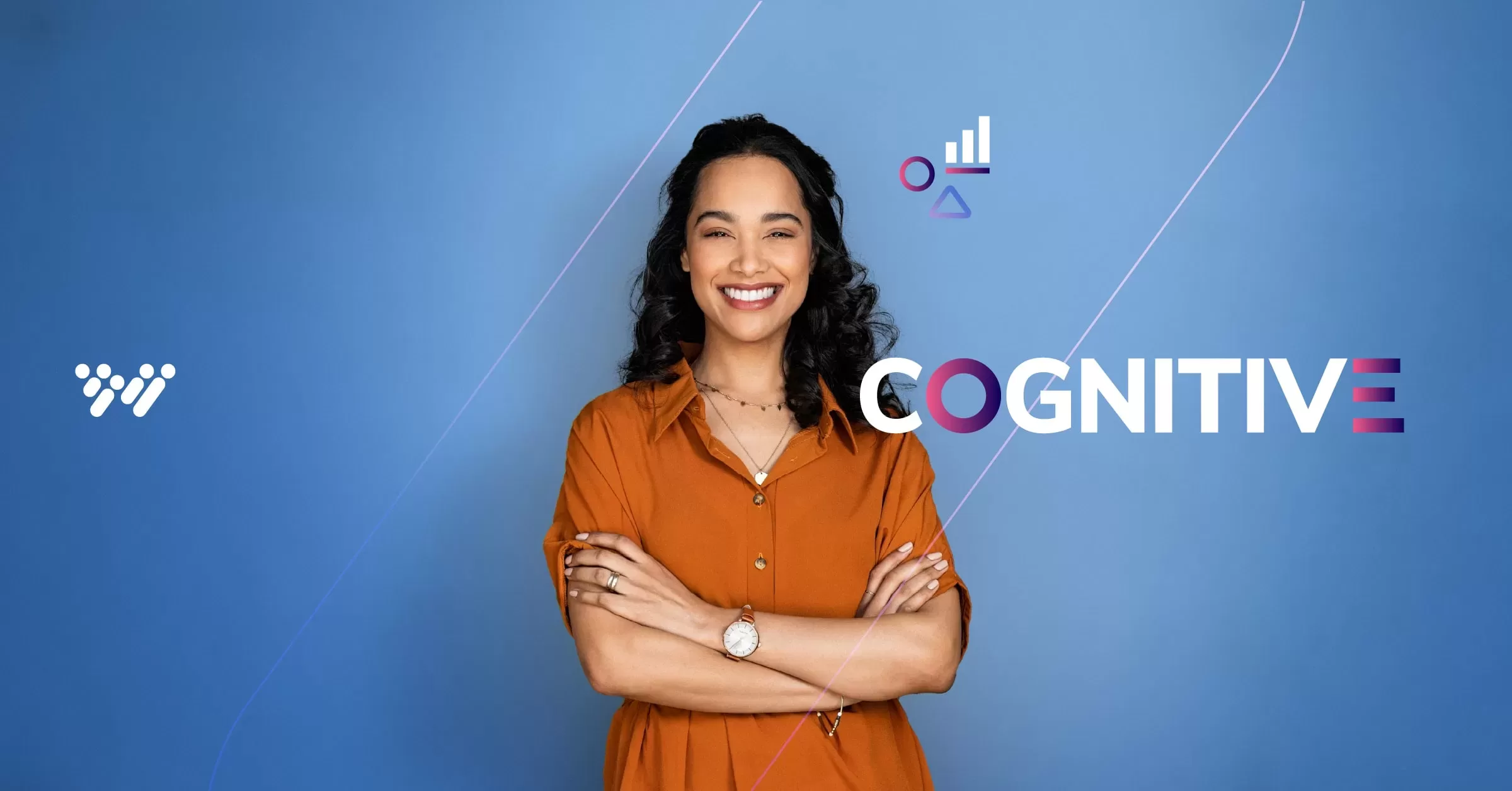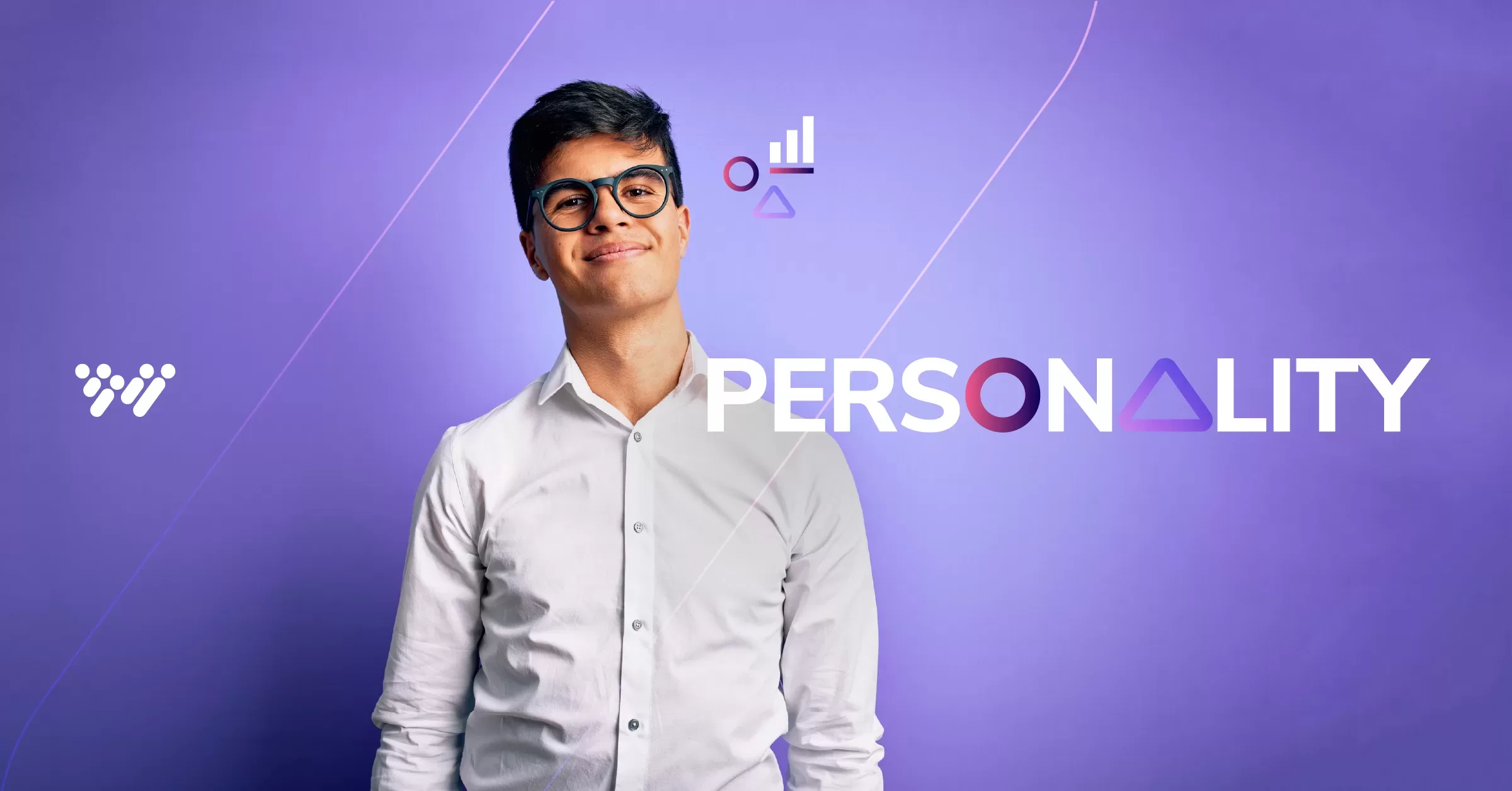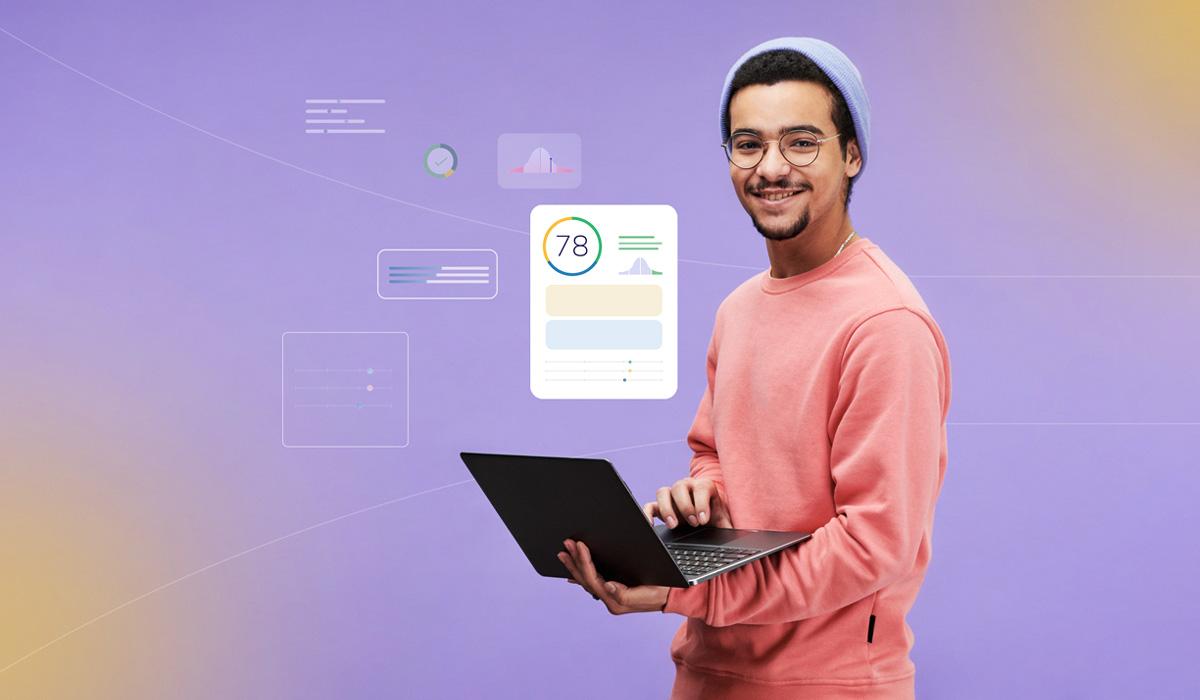Today’s HR professionals juggle countless responsibilities, from managing employee relations to ensuring compliance and fostering a positive work environment. They do so much that they almost seem superhuman. Yet, even these multitasking marvels face challenges when it comes to hiring the right candidate every time. Too often, finding the right fit feels like taking a leap of faith rather than making a well-informed decision. Incorporating a cognitive ability test into the hiring process can significantly improve the chances of making a well-informed decision.
It’s widely known that recruiters determine a candidate’s suitability within just 90 seconds, but that’s because HR professionals have traditionally only had access to resumes. In reality, effective screening methods go far beyond resumes. They include different assessments, standardized interview questions, and much more to help recruiters avoid hiring the wrong candidates and uncover high-potential workers.
This blog post explores how cognitive ability tests can help recruiters and hiring managers make data-driven hiring decisions. You’ll learn more about the different types of cognitive ability tests available and discover how they can help you predict job performance.
We’ll Cover
- What are cognitive ability tests, and why are they important?
- What do cognitive ability tests measure?
- 9 standard measurements of cognitive ability tests
- Why cognitive ability tests are essential for effective recruitment
- How cognitive ability tests enhance employee selection and retention
- Cognitive ability testing best practices
- How Wonderlic helps with the selection of candidates
- How Wonderlic Helps With Employee Development
- FAQs
What are cognitive ability tests, and why are they important?
Put simply, a cognitive ability test is a pre-employment assessment designed to evaluate a candidate’s cognitive skills, including problem-solving, spatial awareness, and decision-making skills essential for success in a role. By cognitive skills, we mean the ability to think critically, process information, and apply knowledge to solve complex problems.
These tests are important because they can help give recruiters an objective data point during the hiring process. If an employee lacks the required cognitive abilities for a role, their performance can start off as — or quickly become — lackluster. Additionally, employees may quit shortly after they’re hired if a job is too challenging or boring. Resarch also shows the cost of a single bad hire averages $17,000, but the true cost can leap to $240,000 when you factor in recruiting fees, onboarding expenses, and lost productivity.
Using cognitive ability tests in your hiring process can help you reduce the risk of snap judgments based solely on resumes and better match candidates’ skills with the job requirements using an objective layer of data, creating a more productive workplace.
What do cognitive ability tests measure?
Cognitive ability assessment tests can be confusing because they might be mistaken for job-specific skill tests or aptitude tests. Understanding the scope and limitations of cognitive ability tests in hiring can help make better hiring decisions needed for success in a specific role.
First, let’s look at what cognitive ability tests DO NOT measure:
- Personality traits like assertiveness, resilience, and creativity
- The ability to understand and control emotions and empathize with others
- Physical abilities such as stamina and strength required for manual roles
- Ethical judgment, such as making moral decisions and adhering to ethical standards
By contrast, cognitive ability tests DO measure different mental abilities and skills essential for doing a job well. These include, but are not limited to, logical, verbal, and numerical reasoning, critical thinking, and problem-solving (more on this next).
9 standard measurements of cognitive ability tests
One common mistake with pre-employment assessments is using a tool for one purpose and then applying it incorrectly to another. Each assessment is designed with specific qualities in mind, so it’s crucial to match the tool to its intended use.
One of the biggest issues that occurs around assessments is when companies use one for a specific use case, like it, and then leverage it inappropriately for another use. Success starts with matching the tool to its purpose.
Michael Grossenbacher, Principal Psychometrician at Wonderlic.
Here are nine cognitive ability assessment tests to help you decide the best one for your needs.
Critical thinking
A WEF report shows analytical thinking is the most sought-after skill among companies today. The rise of AI has led to the automation and simplification of many technical tasks. Critical thinking has become the human differentiator that guides the strategic use of AI and the application of its insights. By evaluating the candidate’s capacity to analyze information without bias, evaluate arguments, and make reasoned decisions, employers can identify best-fit candidates better equipped to tackle complex problems in the age of AI.
Attention to detail
Attention-to-detail tests can help reveal candidates who consistently deliver accurate, high-quality work. This is critical in verticals like healthcare, finance, and manufacturing, where even small mistakes can lead to huge problems, but this cognitive ability is also a prominent strength in other areas like sales and marketing. These assessments involve tasks such as proofreading documents or spotting discrepancies through observation.
Problem-solving
These assessments look into a candidate’s ability to identify problems, generate practical solutions, and implement effective strategies for both short- and long-term issues. For instance, a candidate applying for a management role may need to troubleshoot HR issues and make decisions based on hypothetical job-related scenarios.
Logical reasoning
Logical reasoning skills enable employees to make decisions based on facts, not hunches. These skills help people analyze situations, spot patterns, and solve problems methodically. Whether it’s interpreting research findings, recognizing trends, or diagnosing patients, logical reasoning ensures decisions are clear, coherent, and successful.
Verbal reasoning
This type of test evaluates how well candidates understand and analyze written information, draw logical conclusions, and grasp the meaning of words. For instance, these tests require candidates to interpret reports, follow instructions accurately, or assess arguments based on a given text. Strong verbal reasoning skills are most important in professions like journalism, law, and project management, where they enable professionals to interpret complex rules and regulations, conduct thorough research, and communicate project plans and strategies effectively.
Numerical reasoning
Typically used for roles in accounting, market research, and HR, numeral reasoning tests evaluate candidates’ skills with numbers. This can include basic arithmetic, data interpretation, and logical reasoning involving numerical information. Examples include solving mathematical problems with budgets, analyzing financial data, or interpreting statistical charts.
Memory
In the workplace, the ability to remember and recall information accurately is crucial. A candidate’s capacity to retain and recall information is essential for learning and performing tasks effectively. For example, employees may need to remember complex, mandatory instructions for safely operating machinery or recall specific criteria for meeting a client’s expectations.
Spatial reasoning
Spatial reasoning tests evaluate a candidate’s ability to visualize and manipulate shapes and objects in their mind. In these assessments, candidates may be asked to assemble 3D puzzles or predict the next shape in a sequence. Spatial reasoning also relates to problem-solving in terms of visualizing problems, recognizing patterns, thinking abstractly, reading maps and diagrams, and more. This type of cognitive ability is essential for roles such as mechanical engineer, architect, and interior designer.
Processing speed
These tests assess how quickly and accurately people process and respond to information and spot errors. These assessments are especially beneficial in roles like customer service, emergency response, and project management.
Aptitude tests
Although similar, aptitude tests aren’t the same as cognitive ability tests. While aptitude tests focus on specific job skills or abilities — such as leadership or language proficiency — cognitive ability tests cast a wider net, assessing overall cognitive functioning across different roles and industries.
Why cognitive ability tests are essential for effective recruitment
Research from The Josh Bersin Company found the typical recruitment process now lasts 43 days but can often take much longer, especially for specialized sectors like energy and investment banking. Cognitive ability tests are one way to quickly narrow the candidate pool so recruiters can focus their time and effort on the cream of the crop.
Here are five key reasons why these tests are crucial for effective recruitment.
1. Increase efficiency
A study by Workwivo published in Forbes revealed that a staggering 98% of HR staff report feeling burned out. Almost all (97%) say their work has caused them to feel emotionally drained, and 73% indicate they lack the tools and resources to perform their jobs well.
Implementing cognitive abilities assessments can streamline the recruitment process by quickly narrowing down the talent pool to the most qualified applicants. This allows you to concentrate your time and resources on candidates with the highest potential for success.
Reduce resume review time by at least 50%. Learn more about the ROI of Wonderlic Select.
“Wonderlic Select has offered our company a far more streamlined tool for assessing candidates than prior providers we have worked with. The data provided is insightful in learning the candidate’s cognitive ability, motivation, and personality. It is concise and easy for our less-experienced hiring managers to understand and navigate.”
Linda, Director of Human Resources, Mays Chemical
2. Identify global talent
The talent shortage is real. According to research by Korn Ferry, by 2030, over 85 million jobs could go unfulfilled due to a lack of skilled workers. That’s roughly the same as the entire population of Turkey.
Today, 80% of employers report difficulty filling roles, with the biggest impact in Japan.
Cognitive abilities assessments help identify top talent who can excel in challenging roles. They assess candidates applying for internal promotion and external candidates from across the globe. This ensures that companies can make informed decisions about promoting from within or hiring externally based on the candidates’ demonstrated cognitive abilities relevant to the role.
3. Predict the potential for learning and professional development
The way we work and learn is undoubtedly changing rapidly. Since 2015, job skill requirements have shifted by about 25%, and by 2028, employers expect disruptions in 44% of workers’ skills.
Assessing how well potential candidates perform after being hired is one thing, but what about their ability to learn new skills and grow over time?
Cognitive testing can determine how well employees can pick up new skills and adjust to changing job requirements. Employees with high learning potential quickly grasp new concepts, apply knowledge creatively, and solve complex problems, revealing candidates’ adaptability to new job demands and ability to learn. Investing in employees with strong learning potential unleashes talent development and prepares your workforce for future challenges.
4. Improve employee retention
Some 46% of new hires fail within 18 months. That makes hiring decisions about as effective as throwing a dart blindfolded. Researchers blame old-fashioned recruitment practices, overdependence on resumes, and not enough emphasis on finding the right candidate fit overall.
Look at Duracell, the national leader of keyless entry car remotes and replacement key fobs. The brand improved employee retention by a whopping 400% by using pre-hire assessments, including cognitive ability tests in its hiring practices.
By implementing Wonderlic Select to screen applicants before arranging in-person interviews, they filtered out candidates lacking motivation or the necessary cognitive skills for the position. This method helped streamline their interview process by removing applicants who didn’t meet a set score threshold, saving valuable time and improving retention.
5. Enhance employee engagement
Over three-quarters of employees are not engaged or purposefully disengaged from work. Employees are more likely to feel overwhelmed or underprepared, leading to higher job dissatisfaction and non-engagement.
When people feel capable and competent in their jobs, they’re more motivated to do their best and stay committed to their roles and the organization as a whole.
Given that cognitive ability testing assesses candidates’ problem-solving abilities, critical thinking skills, and ability to process information, companies are more likely to hire the best-fit candidate the first time, every time.
Our multi-measure assessment approach, which evaluates cognitive abilities, personality traits, and motivation, gives you the most accurate prediction of whether your candidate can do the job, is enthusiastic about it, and how they’ll do it.
By including these assessments in your recruitment process alongside standardized interview questions, you can feel confident in selecting top candidates ready to engage, thrive, and advance within your organization.
But don’t take our word for it.
Wonderlic has helped us to evaluate our candidates in a way that demonstrates their abilities outside of what we can see in an interview! This has been a game changer in ensuring we choose the best candidate, and it allows us to ensure we are looking at candidates more holistically.
Amanda, Agent at State Farm Insurance
How cognitive ability tests enhance employee selection and retention
Choosing the best person for the job and keeping them are challenges that never go away. Although there’s no secret ingredient for choosing the best candidate, careful consideration and the right tools can give you objective data to help you quickly weed out unqualified applicants and hedge your bets against bad hires.
Cognitive ability tools can enhance employee selection and retention. Here’s how.
Stand out to potential candidates
First impressions count, right? Taking the time to thoroughly evaluate potential employees shows candidates your commitment to selecting the best person based on their skills and potential.
Plus, it shows applicants that:
- You’re forward-thinking and open to adopting new, more effective recruitment methods
- You’re dedicated to removing biases from your hiring process
- Everything your company does is carefully planned as part of robust recruitment policies and procedures
- You understand how using modern tools and insightful questions can assess candidates fairly
- You value giving candidates a glimpse into your company culture and work environment
By using modern screening tools, such as Wonderlic Select, asking the right questions, and providing candidates with opportunities to showcase their abilities, you’re giving them a sneak peek into what it’s like to work at your company.
Reduce bias
Bias in shortlisting candidates happens when personal prejudices or stereotypes influence hiring decisions. This can lead to unfair treatment based on race, gender, age, or even where a candidate lives rather than their qualifications or abilities.
Such bias can result in the best candidates being overlooked, harming both the fairness of the hiring process and the overall quality of the workforce. Cognitive ability tests offer a more fair and objective way to evaluate candidates compared to more subjective methods like reviewing resumes or relying on personal preferences.
Our cognitive ability tests provide a deeper look into your applicants. You can compare candidates side by side and drill down into their scores between multiple assessments, including cognitive, personality, and motivation, offering a data-driven view of applicants.
Predict talent outcomes
Relying on predictive insights backed by science and job-specific results can improve and streamline your hiring process, predict talent outcomes, and save money!
Our cognitive ability test — part of Wonderlic’s multi-measure assessment — is the only provider on the market that offers ready-made job scoring profiles for all current and emerging jobs. With multiple layers of objective data readily available, you can make more reliable hiring decisions. This results in hiring more high performers who are a good fit for today and can grow with your company to meet the needs of tomorrow.
When you can find something that gives you better hires and saves money at the same time in this economy, it’s a big win.
Jeff McDonald, Director of HR at Sweetwater Sound
Cognitive ability testing best practices
Cognitive ability tests for hiring are only one part of the decision-making process. By that, we mean these assessments shouldn’t be used in isolation.
Follow our best practices and get the most out of your cognitive ability testing.
- Use cognitive tests as part of your standardized screening process. Research has shown that multi-measure pre-hire assessments — including cognitive ability tests — combined with standardized interview questions are the most effective way to predict on-the-job performance.
- Align tests with job requirements. Choose tests that directly align with the role you’re hiring for. For example, if you’re hiring healthcare staff who need strong attention to detail skills, use tests that can assess observational behaviors and critical thinking. The Wonderlic Jobs Engine is the only database on the market that provides off-the-shelf scoring profiles covering all existing and emerging jobs in the market.
- Trust the data. It can be easy to overlook the test results because you like the candidate during the interview. However, ignoring their test results can lead to hiring mistakes. Charisma can fade, but cognitive skills will always be valuable for the job.
- Standardize testing procedures. Maintain consistency in how cognitive ability tests are performed and scored across all candidates. This prevents bias and ensures fairness. For instance, use the same testing environment and time limits for all applicants.
- Don’t rely solely on test results. Cognitive test results are just one piece of the jigsaw. Test results are the most effective and predictive of success when combined with other hiring tools, such as interviews and role-specific skills tests.
- Train assessors. Provide regular training to recruiters and hiring managers — whoever administering and interpreting the tests — to ensure they understand the purpose and how to interpret results accurately. This minimizes errors and ensures consistent evaluation.
How Wonderlic helps with the selection of candidates
As the first to create a short-form cognitive ability test for the workplace, Wonderlic has led the industry in cognitive ability testing for over 80 years. Wonderlic Select, Wonderlic’s signature multi-measure assessment, combines cognitive ability, personality, and motivation tests into one assessment, giving recruiters comprehensive insights while eliminating the need for candidates to take multiple tests.
With Select, recruiters can speed up the hiring process by assessing candidates’ cognitive abilities before scheduling face-to-face interviews and screening out poor-fit candidates. Our cognitive ability test provides valuable insights into how well candidates can handle job-specific tasks related to problem-solving, spatial reasoning, numerical reasoning, and more.
After making a hiring decision, you can use insights from Select to support your new hire with personalized tips, effective communication strategies, and role-specific best practices for successful onboarding. If you’re not using cognitive ability testing as a regular part of your hiring process, now is the time to start.
How Wonderlic Helps With Employee Development
While developing your employees with online courses, conferences, and seminars is valuable, there’s an additional layer of empowerment that comes from providing employees with specific development data: data about themselves, their strengths, and their potential.
Wonderlic Develop is an employee development solution that measures cognitive ability, personality, and motivation to give employees comprehensive insights about their capabilities, behaviors, and interests specific to their jobs.
As early as during the onboarding process, employees receive actionable coaching tips and strategies they can immediately implement into their day-to-day work for high-impact growth that improves workplace performance — all without creating heavy overhead for the organization. This functionality is built into Wonderlic, saving you the time, expense, and headache of building and overseeing a hands-on, time-intensive performance management program.
Ready to use cognitive ability testing to improve your hiring process and unlock employees’ potential? Get started with a demo of Wonderlic.
FAQs
A cognitive ability test is a type of assessment used to measure a person’s mental skills, including their ability to solve problems, think logically, and process information quickly. HR professionals often use these assessments during the hiring process to predict future job performance.
Cognitive ability tests typically include logical reasoning, numerical reasoning, verbal reasoning, spatial ability, learning agility, and processing speed and accuracy.
Cognitive ability tests and IQ tests are similar but not quite the same. IQ tests specifically measure a person’s intellectual potential and ability to learn. On the other hand, cognitive ability tests go beyond just measuring intelligence and evaluate a broader range of cognitive skills, including problem-solving, memory, attention, and reasoning.









